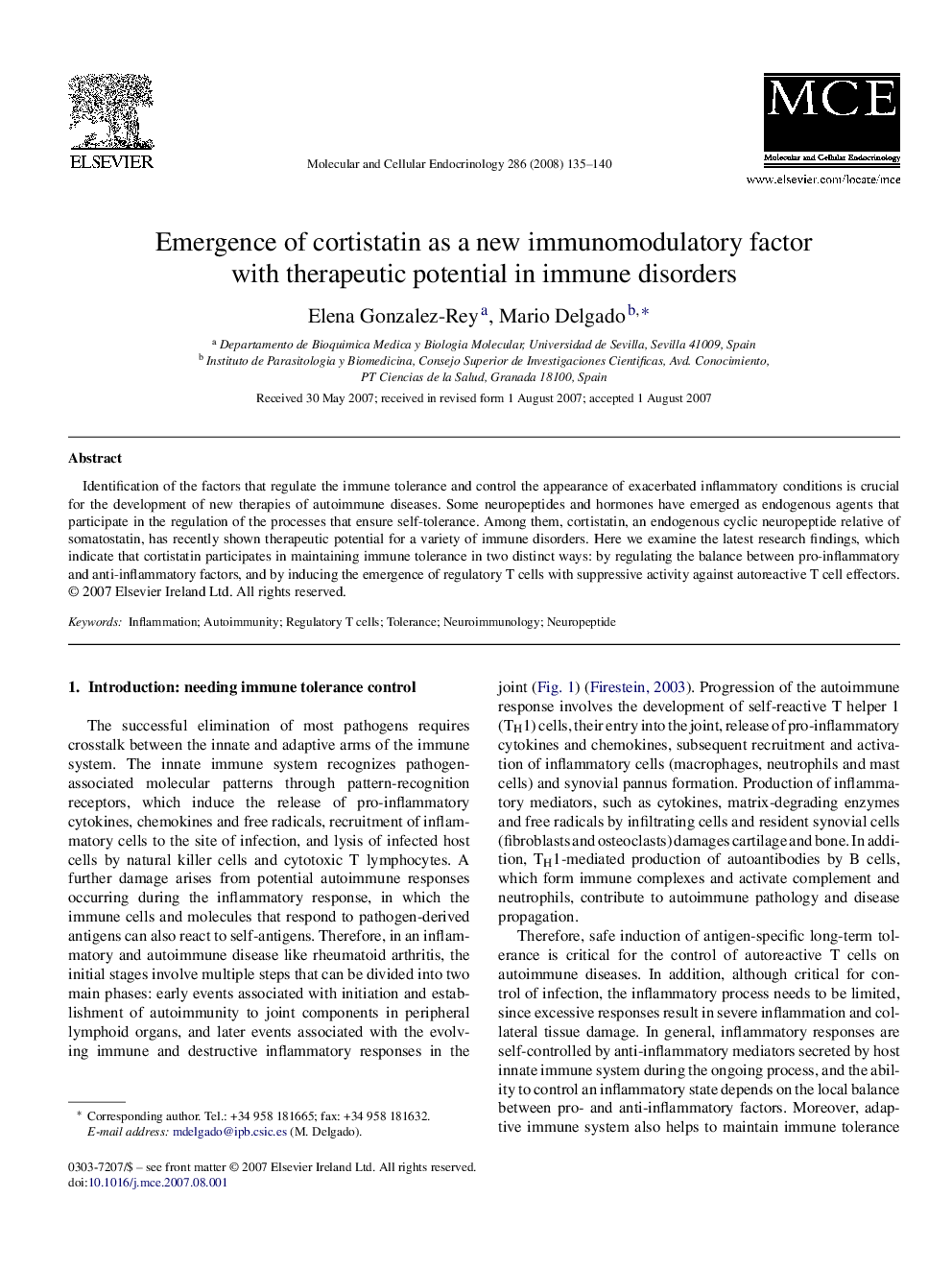| Article ID | Journal | Published Year | Pages | File Type |
|---|---|---|---|---|
| 2197657 | Molecular and Cellular Endocrinology | 2008 | 6 Pages |
Identification of the factors that regulate the immune tolerance and control the appearance of exacerbated inflammatory conditions is crucial for the development of new therapies of autoimmune diseases. Some neuropeptides and hormones have emerged as endogenous agents that participate in the regulation of the processes that ensure self-tolerance. Among them, cortistatin, an endogenous cyclic neuropeptide relative of somatostatin, has recently shown therapeutic potential for a variety of immune disorders. Here we examine the latest research findings, which indicate that cortistatin participates in maintaining immune tolerance in two distinct ways: by regulating the balance between pro-inflammatory and anti-inflammatory factors, and by inducing the emergence of regulatory T cells with suppressive activity against autoreactive T cell effectors.
